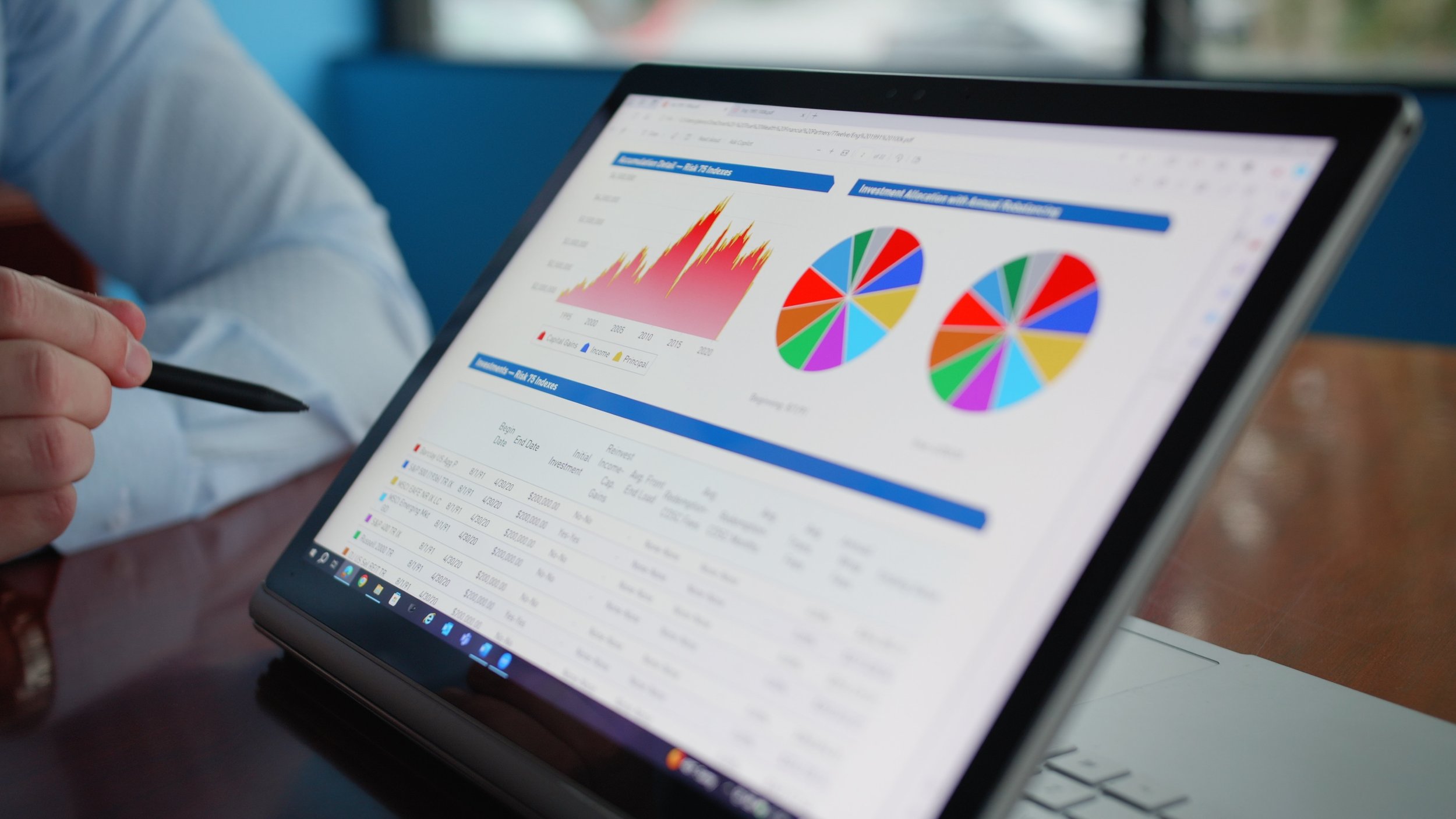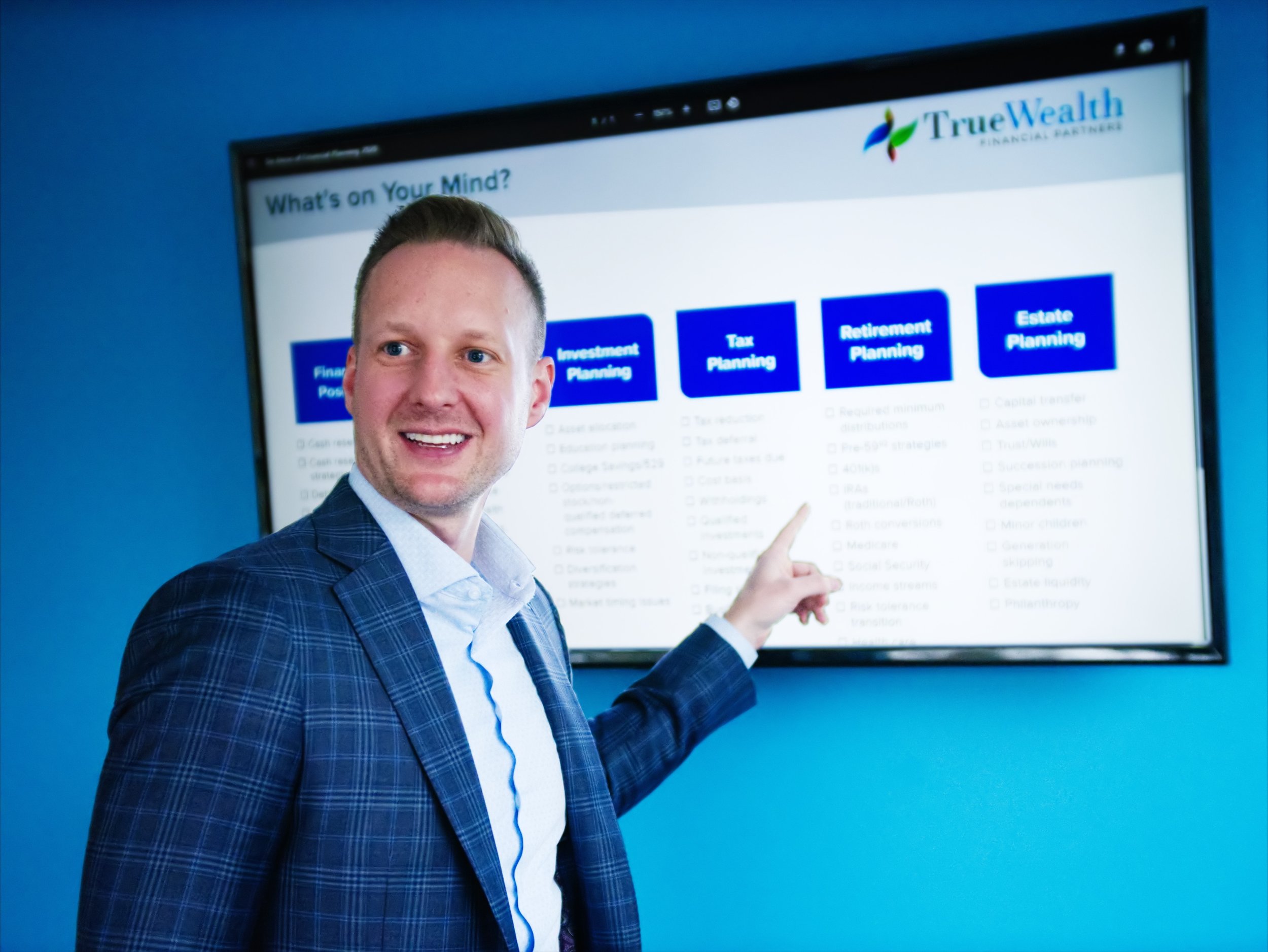Boeing VIP Investments: How to Save More for Retirement
Learn how Boeing VIP investments can help you grow your wealth and save more for retirement.
The Boeing Company Voluntary Investment Plan (VIP) offers an excellent opportunity for employees to grow their retirement savings through a variety of investment options. Understanding these options is crucial for making informed decisions that align with your financial goals.
This guide will cover the options for Boeing VIP investments to help you make the right choices for your future.
Key Takeaways
The Boeing VIP is a 401(k) plan that allows employees to save for retirement.
Employees can invest in a variety of funds to grow their savings over time.
The plan offers "do-it-for-me" and "do-it-myself" options, allowing employees to choose their level of involvement in managing investments.
Understanding Boeing VIP
The Boeing VIP is a Boeing 401(k) plan that allows employees to invest a portion of their salary in various funds. Boeing matches all non-union employee contributions, capped at 10% of your total salary.
This plan is a key component of Boeing’s retirement benefits, providing employees with a tool to grow their wealth over time. Participants in Boeing's VIP can choose from a range of investment options based on their personal goals and tolerance for risk.
Benefits of the Boeing VIP:
Tax advantages: Pre-tax contributions to the Boeing VIP will reduce your taxable income, and the investment earnings will grow tax-deferred. This can result in significant tax savings. Contributions can also be made on a Roth basis.
Compound growth: The earlier you begin contributing to your VIP, the more they can benefit from compound growth. Both the contributions and the earnings on those contributions will grow over time.
Retirement readiness: By participating in the Boeing VIP, you can take an active step towards securing your financial future. This proactive approach to retirement planning will help ensure you can maintain your desired lifestyle in your golden years.
Boeing VIP Investment Options
1. Lifecycle Funds
Lifecycle funds, also known as target-date funds, are tailored around the year you plan to retire. Each fund in this category is a diversified portfolio that automatically shifts its asset allocation from aggressive to more conservative as you get closer to retirement. This helps you grow your income faster (but with greater risk) earlier on, then reduce risk as retirement nears.
These funds are named for the year (roughly) in which you plan to retire. For example:
Risk Level - Fund Name - Investor Birth Year
Lowest Risk - Boeing VIP Lifecycle Retirement Fund - 1955 or earlier
Low Risk - Boeing VIP Lifecycle 2020 Fund - 1956-1960
Low Risk - Boeing VIP Lifecycle 2025 Fund - 1961-1965
Low-Medium Risk - Boeing VIP Lifecycle 2030 Fund - 1966-1970
Medium Risk - Boeing VIP Lifecycle 2035 Fund - 1971-1975
Medium-High Risk - Boeing VIP Lifecycle 2040 Fund - 1976-1980
High Risk - Boeing VIP Lifecycle 2045 Fund - 1981-1985
High Risk - Boeing VIP Lifecycle 2050 Fund - 1986-1990
Highest Risk - Boeing VIP Lifecycle 2055 Fund - 1991 or later
2. Index Funds
Index funds are designed to copy the performance of a specific index, such as the S&P 500 or the Bloomberg Barclays Aggregate Bond Index. They provide a straightforward approach to investing by mirroring the market’s performance, offering more predictable outcomes. Because they are essentially “automatic” and require less oversight, they typically cost less in fees than actively managed funds.
Risk/Volatility - Fund Name - Description
Low Risk - Boeing VIP Bond Market Index Fund - Holds corporate, mortgage-backed, government, and asset-backed bonds
Medium Risk - Boeing VIP Balanced Index Fund - 30% Large Cap US Stock, 40% Bonds, 30% International Stocks
High Risk - Boeing VIP S&P 500 Index Fund - Seeks to track the S&P 500: US Large Cap Stocks
High Risk - Boeing VIP International Index - Seeks to track the MSCI All Country World Investable Market Index
Extra High - Boeing VIP Russell 2000 Index Fund - Seeks to track the Russell 2000 (US Small Cap Stocks)
Pro Tip: We find that Index Funds tend to have a solid track record over time due to their broad diversification and low expense ratios.
Hear from Real Boeing Retirement Clients
Building a plan for family and generosity
3. Actively Managed Funds
Unlike index funds, actively managed funds involve a more hands-on approach where fund managers make investment decisions to try to outperform an investment benchmark index. Managers use their expertise to select stocks, bonds, or other assets they believe will beat the market, offering a more personalized touch to investment strategies. These funds can offer the potential for higher returns, though with a higher risk and increased fees.
Risk/Volatility - Fund Name - Description
Lowest Risk - Boeing VIP Stable Value Fund - Holds Fixed Income
Low Risk - Boeing VIP Global Bond Fund - Holds International Bonds
Medium Risk - Boeing VIP Diversified Real Asset Fund - Holds TIPS, Equities, and Commodities. Focus is on performance during higher-than-average inflationary periods
High Risk - Boeing VIP U.S. Large Companies Fund - Holds U.S. Large Cap Stocks
High Risk - Boeing VIP Global Equity Fund - Holds Global Equities
High Risk - Boeing VIP International Companies Fund - Holds Non-US Equities
Extra High Risk - U.S. VIP Small/Mid Companies Fund - Holds small and mid-cap equities
Pro Tip: We find that actively managed funds tend to have a poor track record compared with index funds over the long run. Feel free to ask us why!
4. Risk / Return Spectrum
Below is a hypothetical spectrum of potential expected returns vs. volatility mapped so you can see where each Boeing VIP fund sits.
Still have questions about your Boeing VIP investment options? We have the answers! Schedule a call, and we can go over the details together. Just pick a date and time.
Boeing VIP Investments: Two Approaches
When planning your Boeing VIP, there are two main approaches you can take:
“Do-it-for-me” strategy
“Do-it-myself” strategy
Each strategy is designed to meet the needs of different types of investors, from those seeking simplicity and hands-off management to those desiring full control and customization of their retirement savings strategy.
Participants should consider their personal investment expertise, the time they can dedicate to managing their investments, and their comfort level with financial risk when choosing between these options.
1. Do-It-For-Me Strategy
This approach simplifies investment decisions by utilizing lifecycle funds tailored to your anticipated retirement year. These funds automatically adjust their asset allocation over time, becoming more conservative as you approach retirement.
Pros:
Simplicity: This approach is ideal for those who prefer a "set it and forget it" strategy, as it requires minimal investment knowledge and ongoing management.
Automatic adjustment: The fund’s asset allocation becomes more conservative as your retirement date approaches, which aligns with decreasing risk tolerance.
Diversification: each fund is composed of a mix of asset classes, providing built-in diversification across stocks, bonds, and other investments.
Cons:
Less control: Investors have limited ability to customize the fund’s composition or react to market changes quickly.
Generalization: The fund’s strategy is designed for an average investor, which might not perfectly align with your unique goals, risk tolerances, and financial situations.
Fee structure: While generally not as high as actively managed funds, fees may be higher than choosing a simple index fund strategy.
2. Do-It-Myself Strategy
For those who prefer a hands-on approach, this strategy allows you to build and manage your own investment portfolio using the variety of options available within the VIP.
Pros:
Customization: This approach lets you tailor your portfolio to match your specific financial goals, risk tolerance, and investment preferences.
Flexibility: This also allows for dynamic adjustments to your investment choices based on changing market conditions or personal circumstances.
Potential for higher returns: With the right choices, you can potentially outperform the returns of pre-set funds.
Cons:
Requires more know-how and time: This approach demands a good understanding of investment principles and ongoing management to monitor and adjust the portfolio.
Higher risk: Without the automatic rebalancing of Lifecycle Funds, there's a risk of not adjusting your risk exposure as you near retirement.
Possibility of too much or too little diversification: Managing your own portfolio includes the risk of spreading your investments too thinly or concentrating too much in one area without proper diversification.
Hear from Real Boeing Retirement Clients
From Corporate Finance at Boeing to Financial Freedom with Family
Managing Your Boeing VIP Investments
No matter what approach or investment funds you choose, here are some tips worth keeping in mind to get the best results.
1. Know Your Risk Tolerance
Understanding your risk tolerance is fundamental to managing your investments. Risk tolerance means how much of a risk you’re willing to take when investing. Some investments are very predictable, but offer less potential for high returns. Others are riskier, but could net serious results if they work out.
Younger employees might opt for higher-risk investments, while employees nearing retirement may prefer lower-risk investments to preserve their savings. But in the end, only you can decide what’s best for you.
(Though it would be smart to get some advice from a qualified professional, too!)
2. Diversify Your Investments
It’s always wise to diversify your investments. That means never putting all your eggs in one basket. By spreading your investments across various asset classes, you can reduce the impact of poor performance in any single investment.
You should diversify both investment categories and individual investments.
Diversify across categories: Include a mix of stocks, bonds, and other assets to balance potential risks and rewards.
Diversify within categories: Even within a category like stocks, consider diversifying across different sectors (technology, healthcare, industrial, etc.) and geographies (U.S., international markets, etc.).
As a rule, if you have more than 20% of your VIP savings invested in any single company, stock, or industry, you are probably under-diversified. In that case, it would be a good idea to spread your investment out over more funds. That way, if one investment does poorly, the others will help minimize the loss.
Diversification doesn't eliminate the risk of loss but can be a valuable strategy to achieve more consistent returns over time.
3. Monitor and Adjust Your Strategy
No matter how you choose to invest your VIP, you’ll want to review your choices regularly. Circumstances can change, and you want to be sure that your VIP strategy is still aligned with your goals. You may need to adjust your strategy at times for better results.
For example:
Some investments may grow faster than others, causing your portfolio to stray from your original asset allocation. You can “rebalance” this by selling off over-performing assets and buying under-performing ones to maintain your strategy.
Major life events such as marriage, the birth of a child, purchasing a home, or nearing retirement can also significantly impact your financial goals and risk tolerance. When these changes happen, be ready to update your investment choices accordingly.
We recommend reviewing your investments at least once a year, and always after a major life event.
4. Get Help from a Qualified Professional
Managing your investments can be daunting, especially with so many options available. A qualified financial professional can give you valuable insights and help you make informed decisions about your Boeing VIP investments. For example:
A financial advisor can develop a financial plan tailored to your unique needs and goals.
They will stay updated on economic trends and regulatory changes that might impact your investments.
They will monitor your investments and make adjustments as needed.
They can offer an objective perspective on your financial situation, helping you make unbiased decisions that might be difficult when managing your own investments.
Learn more about how a financial advisor from TrueWealth can help you!
Hear from Real Boeing Retirement Clients
From DIY’ers to Retirees
Boeing VIP Investments FAQs
How do I enroll in the Boeing VIP?
If you aren’t enrolled in the Boeing VIP already, you can typically enroll through the Boeing employee benefits portal or your HR department. New employees are often automatically enrolled, but you should confirm their enrollment and contribution settings.
What are the contribution limits for Boeing VIP investments?
In 2025, the Boeing 401(k) contribution limit is:
$23,500 for employees under 50
$31,000 for employees 50 or over
These numbers can change annually. The Boeing employee benefits portal will provide up-to-date limits for both pre-tax and Roth contributions.
Does Boeing VIP allow catch-up contributions?
Yes, the Boeing VIP allows catch-up contributions for employees aged 50 and older. This feature enables eligible participants to contribute additional funds beyond the standard contribution limits, helping them accelerate their retirement savings as they near retirement.
Can I change my investment options and contribution amounts anytime?
Employees can usually change their contribution rates and investment choices at any time through the plan’s online management platform, although some changes may have specific time frames or restrictions.
What is a company match, and how does it work?
Boeing provides a dollar-for-dollar match for all non-union employee contributions up to 10% of your salary, enhancing the growth of their retirement savings. Details on the matching formula and limits can be found on the employee benefits portal.
Are there any fees for investing through the Boeing VIP?
Yes, like most retirement plans, there are administrative and investment fees. Employees should review the fee disclosure in the plan documents to understand how these might impact their investment returns.
How do I know which Boeing VIP investments are right for me?
Choosing the right investment options depends on several factors including your age, financial goals, investment horizon, and risk tolerance. A financial advisor can help you optimize your choices for the best results.
Can I contribute to both a Roth and traditional 401(k) within the Boeing VIP?
Yes, Boeing VIP allows employees to make contributions to both Roth and traditional 401(k) accounts. This flexibility lets you manage your tax liability now and in retirement based on your personal financial strategy.
Does Boeing VIP automatically rebalance investments?
Yes, automatic rebalancing is offered to ensure your investment allocations stay aligned with your target mix over time. This feature periodically adjusts your portfolio to maintain the desired risk level and investment strategy.
How are investment options selected for the Boeing VIP?
The investment options are carefully selected and monitored by the plan's administrative committee, which assesses the performance and suitability of funds to ensure they meet the diverse needs and risk profiles of all participants.
What happens to my Boeing VIP if I leave the company?
Upon leaving Boeing, employees have several options such as:
Leaving the funds in the plan (if above a certain minimum)
Rolling them over into an IRA or another employer’s 401(k)
Withdrawing the funds (which may incur taxes and early withdrawal penalties).
What should I do with my Boeing VIP investments when nearing retirement?
As you near retirement, it’s important to consider shifting towards more conservative investments to preserve capital. This might involve increasing allocations to bond funds or stable value funds and reducing exposure to volatile stock markets.
When can I withdraw money from my Boeing VIP account?
Withdrawals from the Boeing VIP can typically be made upon reaching retirement age. However, the plan may also allow withdrawals under certain circumstances, such as hardship or termination of employment. Early withdrawals are possible but may be subject to taxes and penalties, depending on the circumstances.
Investing in Your Future Starts Today
Boeing VIP is more than just a retirement plan – it’s a comprehensive tool to help build a stable foundation for the future. By understanding the benefits and risks of Boeing VIP investments, you can plan for a comfortable and secure retirement.
Of course, investing in anything can get complex. If you need some help understanding your options and making the right choices, schedule a free call with us today. We’ll be more than happy to answer all your questions.
Let’s talk!




